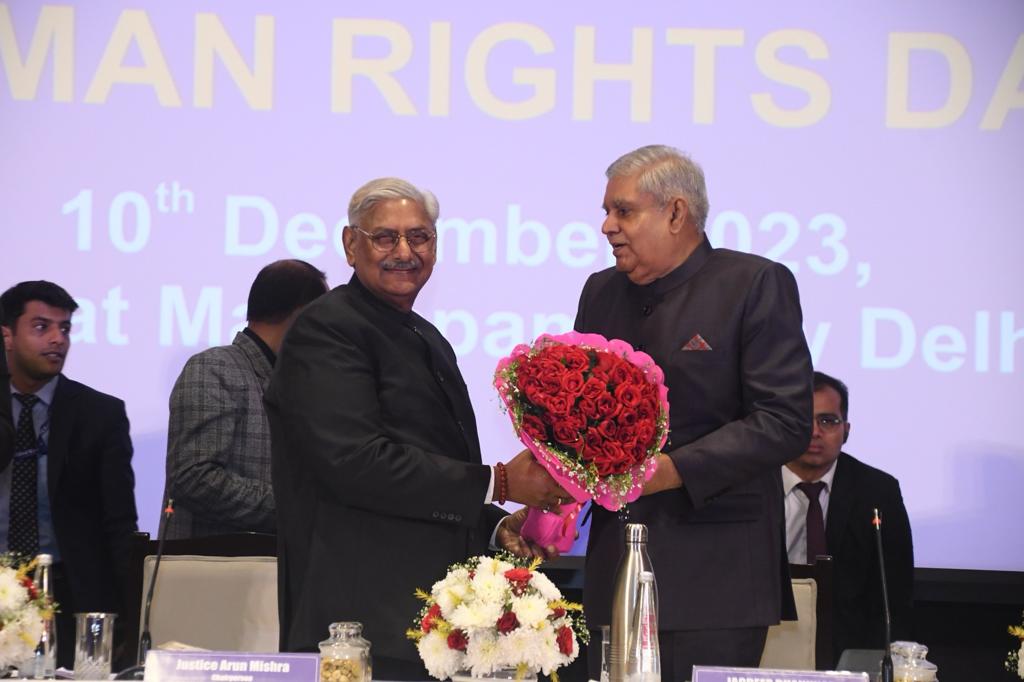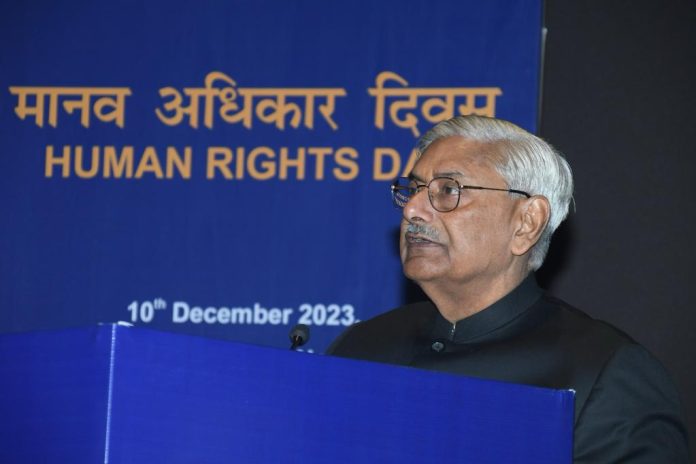National Human Rights Commission (NHRC) Chairperson Justice Arun Mishra on Sunday said that though Internet was a useful tool, which helped people in their day-to-day lives, however if maliciously used, it could fuel divisions between different communities and undermine human rights.
Speaking during an event organised by NHRC at Bharat Mandapam in New Delhi to
celebrate Human Rights Day in commemoration of the Universal Declaration of Human Rights (UDHR), Justice Mishra said that Internet also had a dark side.
It infringed on privacy through the spread of hate speech misinformation, undermining democratic processes and increasing online violence against women and children.
He said when used improperly or maliciously, Internet can fuel divisions within and between communities to undermine human rights.
Justice Mishra said advanced digital technologies could be a significant driver in achieving progress for all and the Sustainable Development Goals (SDGs).
However, the ethical ramifications of digital technologies was a matter of grave concern, he said, adding that the challenges of modern technologies weave through the fabric of contemporary society.
The NHRC Chairperson expressed hope that in an age marked by rapid technological advances, globalisation and an increasingly interwoven socio-cultural fabric, the shared commitment towards human rights would propel the world towards a tomorrow where the inherent dignity and rights of every person were acknowledged and protected by all.
He mentioned the dramatic rise in inequality and the triple planetary crisis, climate change, biodiversity loss and pollution, stating that all these issues required immediate attention.
Calling business enterprises as a major source of investment, innovation and development, Justice Mishra said that businesses must effectively address the human rights concerns.
Speaking about terrorism, Justice Mishra said that it caused grave violation of human rights of citizens across the world. He said condoning or sympathising with terror acts and terrorists was a great ‘disservice’ to the cause of human rights, adding that no one should glorify or sympathise with them.
The NHRC Chairperson appreciated the role of the institutions of local self-governance, the Municipal bodies and Panchayats in implementing constitutional values.
Calling the institutions as indispensable, he directed them to effectively and transparently discharge their statutory civic functions enjoined upon them in advancing human rights.
He further tasked them with promoting the concept of ‘fraternity,’ improving the quality of life, apart from ensuring clean water supply, water, sanitation, public health and equality for citizens.
As per Justice Mishra, both governmental and individual responsibilities are integral to creating a just and equitable society where human rights were valued, protected, and upheld for every individual.
He said issues such as poverty, climate change, harmonising human rights and business, women empowerment in the workplaces, along with providing safe and secure cyberspace, had huge ramifications on human rights on a vast scale.
The NHRC Chairperson further sought strengthening of vulnerable groups including transgender persons, people with mental illnesses, sex workers, beggars, destitute, elderly, orphaned children and persons in need.
He said their human rights violations must be addressed on priority, with sensitivity to their plight.
Besides, the problems of spurious drugs, medicines, food adulteration, and drug addiction, among the young generation must be dealt with stringently and expeditiously, he added.
Vice-President Jagdeep Dhankhar, UN Resident Coordinator in India Shombi Sharp, NHRC members – Dr Dnyaneshwar Manohar Mulay and Rajiv Jain, members of the Judiciary, the Statutory Commissions, State Human Rights Commissions, Diplomats, Special Rapporteurs, Special Monitors, academicians and members of the civil society, NGOs, human rights defenders, students and specially-abled children, among others, were present on the occasion.



